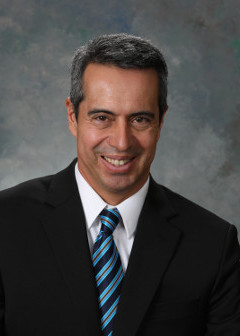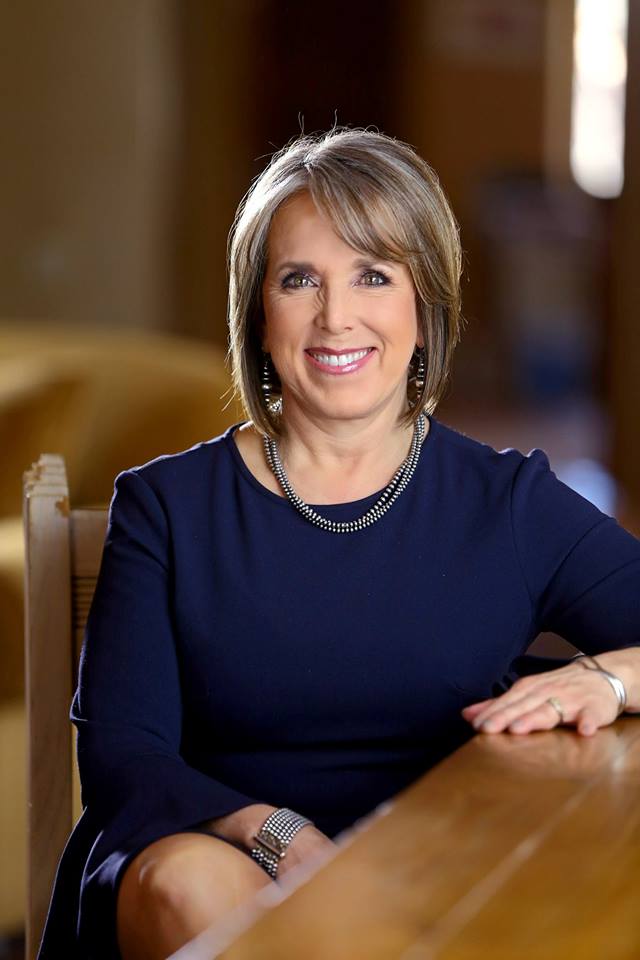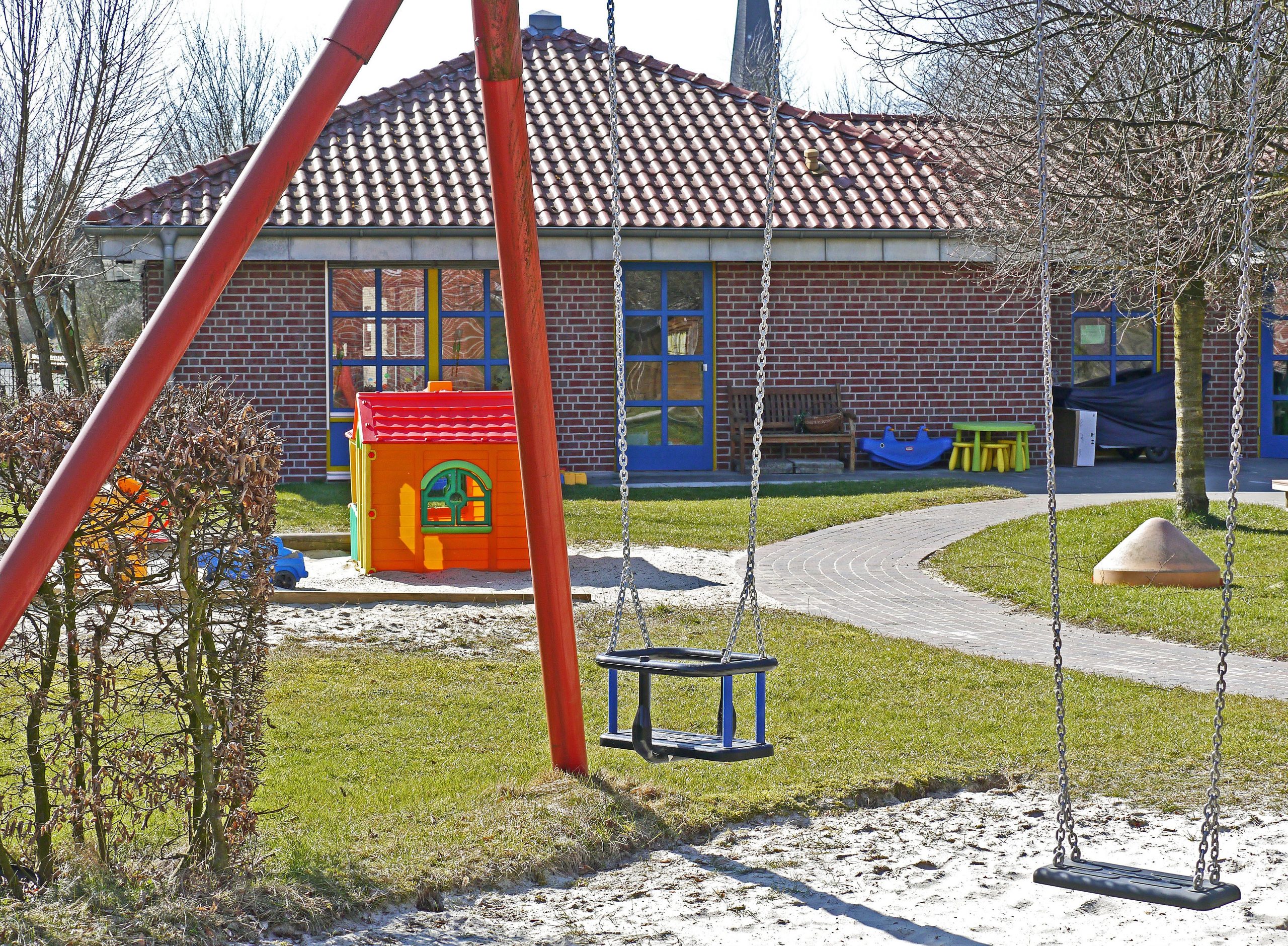After a decade of organizing, early childhood education advocates in New Mexico are convinced they are about to secure something historic: a change to their state constitution that will not only secure stable funding for children ages zero to five, but enshrine a right to education for young children. If they succeed, theirs will become the first state to ever guarantee a right to education for children below age five.
But the job isn’t financially rewarding. She makes $11 an hour, and to make ends meet for herself, her 16-year-old son and her three older sons who have left home, she has to work a second job as a babysitter for the families at her school during the nights and weekends.
So she got involved with OLÉ, a grassroots organizing nonprofit in New Mexico. The organization is part of the coalition currently fighting to tap money from the state’s Land Grant Permanent Fund, billions of dollars the state generates every year from fees generated off of all the public land it holds in trust. Under the existing state constitution, K-12 education already receives 5 percent of the funds every year. Advocates want to change the constitution so that another 1 percent of the money is devoted to education and services for children from ages zero to five. In order to do so, the legislature has to pass a bill and then put the issue in front of voters, who also have to sign off.
“I just believe education is important at every age, and I believe that educators need fair pay,” Natachua said. With more funding that enables better pay, she thinks that early childhood educators will be able to get more training and degrees, and that the industry will see less turnover. She hopes to be able to spend more of her time getting an education to further her career.
They set their sights on the Land Grant Permanent Fund. If their effort succeeds, new money will go directly to ensuring universal preschool for three- and four-year-olds, expanding child care to more families who need it, and enhancing the state’s home visiting program for new parents.
It’s a stable source of income. Even if 1 percent of the money is assigned to early childhood education and services, an independent economist found that the fund would still “grow healthily.” As it grows, it creates more money for early childhood education, money that doesn’t require action from the state legislature. Lawmakers won’t be able to cut funding when hard times hit.
When advocates started calling for money from the land trust to go to early childhood education, the trust was $10 billion dollars, said Allen Sánchez, president of CHI St. Joseph’s Children, another member of the coalition that offers home visiting to new parents. Now it’s worth roughly $20 billion. “It’s doubled during this initiative,” Sánchez noted, while the state has slid to number 50 in the Annie E. Casey Foundation’s state rankings for child well-being and education. One estimate put the unmet need in the state for early childhood education at more than $400 million a year. “We have the second-highest stockpile in the nation and are the lowest ranking in the nation,” Sánchez said. “There’s something wrong with that.”
But there are other reasons advocates want to tap the fund. When New Mexico became a state in 1912, land that the government had seized from Native Americans was put into a trust, which today is the Land Grant Permanent Fund. “It has its roots in colonial and territorial times, great inequity and racism,” Sánchez said. Racism and inequity are also evident in the state’s high childhood poverty rates, as many of those children are Hispanic and Native American. “It’s a social and racial justice issue,” he said.

The state house passed legislation to tap the fund for early childhood education seven times, but each time the bill reached the state senate, conservative Democrats blocked it from getting out of committee. Now the political tides have turned. Early childhood advocates like OLÉ got heavily involved in the most recent election. It wasn’t a hard sell with the public. “It just doesn’t compute for them that child care is so expensive and yet teachers make so little in wages,” Gallegos said. “When we tell voters we’ve got a $20 billion education fund and none of that goes to child care, it just makes a lot of sense.”
Voters ousted the conservatives and sent in a new wave of progressive Democrats, and the new Democrats support the measure to use the land grant to fund early childhood education. It was even an active issue in many of their races and was featured on their campaign websites.
One of the legislation’s sponsors is Representative Antonio Maestas. “I see the fund as a development fund…there to develop our state so that we can create an economy,” he said. “This is the best investment we could make with that fund.” Maestas is also a young father, with two children ages five and six. “Zero to five is key,” he said. “Kids, they’re like sponges. They can learn anything.” But that requires high-quality settings that foster their development.
The Democratic governor, Michelle Lujan Grisham, has also thrown her support behind the initiative, even though it doesn’t require her signature to be put in front of voters. “Early childhood programs are at the foundation of what New Mexico is trying to achieve—for our children, for working parents and our common future,” she told Early Learning Nation in a statement. “We will never improve outcomes in public education, health and workforce development without well-funded early childhood programs that lift up entire families.”

If the measure passes, it will be thanks to years of work by advocates. “This has been a really grassroots effort with families going up to the [state capital] every year and testifying,” said Jessa Cowdrey, director of public policy and marketing at St. Joseph’s. Sánchez added, “It was important that we did the hard advocacy, that meant we held people accountable.” Since getting involved, Natachua has not only sent countless texts to her fellow state residents, but struck up conversations about the issue in line at the grocery store. “I am a people person,” she noted with a laugh.
The good news, advocates say, is that they have answered any questions skeptics could have over the last decade. “I don’t think any legislation has been more vetted,” Sánchez said. And the public is for it. A recent poll found that nearly three-quarters of state voters support the measure. “This is definitely the moment,” Gallegos said.
Maestas thinks the current economic crisis caused by the pandemic has created a huge shift, one that will result in victory for this legislation. It has “flipped the switch. We are now ready to embrace the future,” he said. “The time is now, and we’re going to seize the future.”
If they do, Natachua may finally be able to achieve her long-term goal: opening a day care center of her own to serve her tribe, the Zuni Pueblo people. But first she needs funding to secure a location and get it up and running. Perhaps money from state-owned land will finally make her dream a reality.

Bryce Covert
Bryce Covert is an independent journalist writing about the economy. She is a contributing op-ed writer at the New York Times and a contributing writer at The Nation. Her writing has appeared in Time Magazine, the Washington Post, New York Magazine, the New Republic, Slate, and others, and she won a 2016 Exceptional Merit in Media Award from the National Women’s Political Caucus. She has appeared on ABC, CBS, MSNBC, NPR, and other outlets. She was previously Economic Editor at ThinkProgress, Editor of the Roosevelt Institute’s Next New Deal blog, and a contributor at Forbes. She also worked as a financial reporter and head of the energy sector at mergermarket, an online newswire that is part of the Financial Times group.



